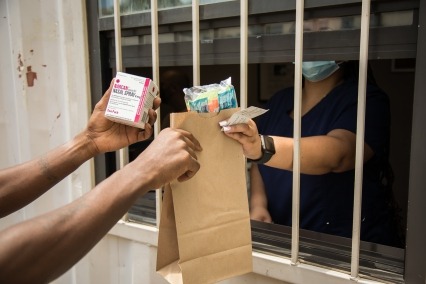

Syringe services programs (SSPs) are community-based prevention programs that can provide a range of services, including access to and disposal of sterile syringes and injection equipment, vaccination, testing, and linkage to infectious disease care and substance use treatment.
NIDA, the Centers for Disease Control and Prevention, and others have conducted and supported research on these programs for nearly 30 years. Researchers have found that syringe services programs are safe, effective, and cost-saving tools to prevent HIV and high-risk injection behaviors that can impact the spread of other infectious diseases among people who inject drugs. 1-5 These programs may be commonly known as needle exchanges and are considered a type of harm reduction initiative.
Syringe services benefit people who inject drugs and their communities in multiple ways.
Sharing and reusing injection equipment is associated with a high risk of transmission of blood-borne diseases—including life-threatening infective endocarditis, HIV, hepatitis B, and HCV—as well as skin and soft tissue infections. 6,7 By providing sterile injection equipment, syringe services programs aim to reduce transmission of infectious diseases. Syringe services save lives and can significantly reduce HCV transmission and effectively end HIV outbreaks, especially when combined with medications that treat opioid use disorder. 8,9 In the United States, experts point to these services as especially critical for preventing the community spread of HIV and addressing the intertwined public health crises of HIV and opioid use. 10
Many syringe services programs provide additional services including the distribution of the overdose-reversing medication naloxone, HIV and HCV testing and prevention interventions, vaccination, and referrals for substance use treatment and other health care. These comprehensive approaches result in better substance use outcomes for people who inject drugs and can improve the overall health of communities in which programs operate. 11